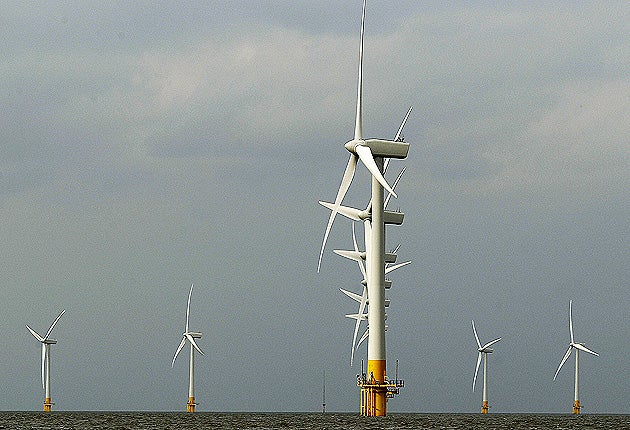All new homes to run on green power by 2016
Developers failing to reach zero-carbon standards will be charged a levy to fund local energy plants

Every new home is to be powered by a green energy plant to offset its environmental impact under government plans for zero-carbon living from 2016.
If a development is too small, remote or shielded from wind or sun for an effective renewables scheme, developers will pay a levy to the local council to create bigger plants nearby that would cancel out the carbon footprint of the homes, while providing green power. According to government figures, more than a quarter of all CO2 emissions come from residential properties.
All new homes are rated under the Code for Sustainable Homes. Where planned properties do not reach the highest level 6 standard – where their own green energy production offsets their emissions – developers would be charged a tariff of around £15,000 by the local council to fund infrastructure and local services. Part of this would also include contributing to a "buy-out fund" to pay for the construction of wind farms, solar panels or geothermal technologies in the local area, which would supply the new development with green power.
It is hoped the plan would result in economies of scale, where a larger renewable energy plant could offset the carbon emissions of several small plots of houses.
The housing minister, Grant Shapps, said: "We are committed to being the greenest government ever, and an essential part of that is to ensure that all homes in the future will be built without emitting any carbon. This announcement is an important and very significant step in that direction because for the first time we have described in detail how developers might be expected to achieve zero carbon, by connecting developments to local energy schemes."
Labour set the 2016 zero-carbon target in 2006 but did little to explain how it would be met, or even what the definition meant. The coalition has given £600,000 to the public-private body Zero Carbon Hub to begin testing new benchmarks for carbon emission reductions. However, even supporters of the scheme complain that the coalition has reneged on a promise to set out a definition for a zero-carbon home "within weeks" of taking office.
Simon McWhirter, from the conservation charity WWF, said the levy on developers was "really important" to ensure that new properties, such as flats, which cannot practically generate enough green power on site, can still be zero carbon. "The ability for small builders to pay into a pot which will then be used independently to deliver the emissions reductions elsewhere is a sensible approach to take."
Ministers are also being urged to ensure that building guidelines do not include measures to prevent loss of heat and power that make the homes uninhabitable, through overheating or poor ventilation.
Dr David Strong, chief executive of consultancy Inbuilt and a member of the Zero Carbon Hub's task group, said: "My big worry is as we start to build our homes to increasing standards, unless there is considerable care in the way they are designed and built, there is a real danger of a whole lot of perverse outcomes."
Nottingham City Council already runs a district heating system, in which domestic and commercial waste is used to provide electricity and hot water to more than 4,600 homes, the National Ice Centre, and two shopping centres.
Join our commenting forum
Join thought-provoking conversations, follow other Independent readers and see their replies
Comments
Bookmark popover
Removed from bookmarks